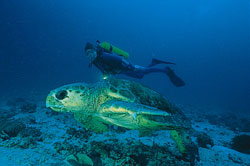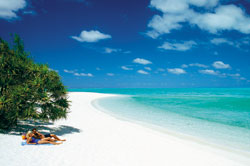A small tropical paradise on the Great Barrier Reef is at the forefront of research into why corals around the world are dying in droves.
Of all the beautiful places on earth, the majestic Great Barrier Reef stands out as one of the most remarkable. Perhaps because, much like the Amazon rainforest, the reef is a vast living creature that eats, breathes, and supports the existence of millions of exotic creatures. Sadly, also akin to the Amazon, it is a canary in the coalmine for environmental issues.
Marine scientists have voiced heightened concerns over the last few years about the state of the Great Barrier Reef. Its 2,900 individual coral reefs have been dying at a rate unprecedented in modern history, and as the corals go, so do the countless small fish, molluscs and turtles that call them home.
Going up the food chain, larger ocean dwellers like sharks lose valuable food resources. The destruction of coral has an impact on the entire ecology of an ocean region, and few organizations are as keenly aware of that as the team at Heron Island, a small luxury resort isle set on a reef platform of more than 25sq km.
The Heron Island Research Station, run by the University of Queensland, has been at the cutting edge of marine science since the 1950’s. As far as reef research goes, it’s difficult to image a better place than Heron.
The island is located close to the Continental Shelf, providing an abundance of different small ecosystems to study, and the large scale of the station can accommodate 150 scientists and students at a given time.
For those who have an interest in marine science – but not the degree to join the station’s team – a 200-guest dive resort on the north-west corner of the island offers the chance to get up close and personal with the reef and its vibrant inhabitants. Certified by Ecotourism Australia, Heron Island Resort also educates guests about conservation and books hour-long tours of the research station.
Unfortunately, the most recent conclusions from the station’s studies do not bode well for the future of Australia’s most distinctive landmark. Findings have indicated that, due to factors such as cyclones and fertilizer-caused starfish infestations, less than 25% of the reef will be alive in 2022. It’s a strong warning that the country’s leaders would be wise to heed.
Visit to learn about visiting Heron Island Resort:Vladi Private Islands
Read more about the plight of the Great Barrier Reef: NPR.com





